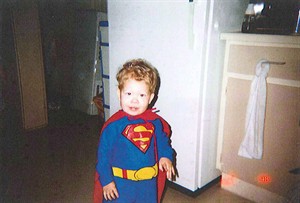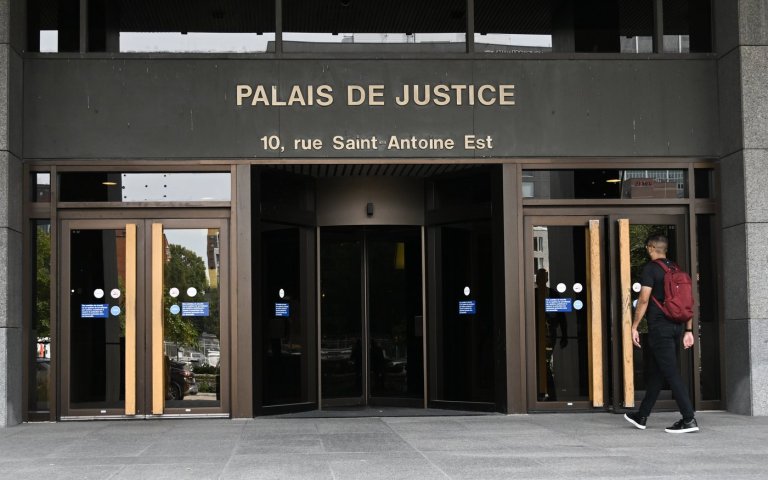
Coroner’s jury to make recommendations in inquest of boy who starved to death
TORONTO – A coroner’s jury is set to deliver recommendations today aimed at helping prevent deaths like that of a five-year-old boy who starved to death in his grandparents’ home in Toronto.
Jeffrey Baldwin and his siblings were placed in the care of his grandparents, who starved and neglected him so severely that when he died just shy of his sixth birthday his weight was that of a 10-month-old infant.
Both of Jeffrey’s grandparents had previous convictions for child abuse, but those records weren’t discovered in the Catholic Children’s Aid Society’s own files until after his death in 2002.
After an inquest that spanned several months and saw more than 300 exhibits, the jury has been considering its verdict and recommendations for little more than a week.
The jury will likely rely on dozens of recommendations jointly suggested by the various groups with standing at the inquest.
The proposed recommendations focus largely on the child welfare system and its information-sharing and record-keeping practices, but also on areas such as schools and the public’s duty to report suspected child abuse.
Lawyers suggested Jeffrey didn’t just slip through one crack, but through a whole institutional safety net.
The inquest jury must also decide by what means Jeffrey died, though it’s expected the jury will find it was homicide, especially since the boy’s grandparents — Elva Bottineau and Norman Kidman — were convicted of second-degree murder.
Jeffrey’s parents were barely out of childhood themselves when they had four kids in quick succession, and nearly as swiftly they were taken away by children’s aid and handed over to the grandparents.
The family’s caseworker has testified that she had no concerns about Bottineau, who she thought was a reliable pillar of support when compared to Jeffrey’s often-volatile teenage parents, so she never conducted any records checks on her or Kidman.
Had those checks been done, workers would have found a disturbing history of child abuse.
After Bottineau’s first baby died of pneumonia in 1969 doctors found multiple untreated fractures and she was convicted of assault causing bodily harm.
Two different psychological evaluations cast major doubts on Bottineau’s ability to care for children.
Bottineau then had two more children, who were made Crown wards following a severe beating by Kidman that landed them in hospital. He was convicted of two counts of assault causing bodily harm.
Those two children later alleged horrific abuse and neglect, including being tied to their beds and locked in dog crates.
After those two kids were removed from the home, the Catholic Children’s Aid Society supervised Bottineau’s care of her and Kidman’s three daughters for a time.
There were records of abuse investigations in the following years, including allegations made about some children Bottineau cared for as a foster “day mom.”
Bottineau testified at the inquest and said she was having a hard time with Jeffrey, who she described as having a “slow learning ability.”
Her testimony gave a glimpse into how Jeffrey might have ended up locked for long periods of time in his cold, urine-soaked, feces-stained, nearly barren room.
Once she got permanent custody of him in family court Jeffrey was essentially hidden from the rest of the world. He was not enrolled in school because he was not toilet trained, Bottineau said.
Jeffrey had not been taken to a doctor since he was 18 months old, the inquest heard.
In addition to Bottineau and Kidman four other adults lived in that home — two of their daughters and their partners — yet no one alerted authorities to what experts have said would have been Jeffrey’s obviously shocking and deteriorating condition.
Dr. Stanley Zlotkin studied Jeffrey’s autopsy photos and deemed them like nothing he had ever seen, despite having worked at the Hospital for Sick Children since 1980 and having done work in Africa.
“Jeffrey was literally skin and bones,” he wrote in a report. “This child was likely chronically starved of food. There is no alternative hypothesis to explain the severe wasting and stunting.”
Many changes have already been made in the child welfare system since Jeffrey died in 2002, but all parties agree there is more to be done.
Standards for kinship care were overhauled in the wake of Jeffrey’s death and the CCAS maintains that in today’s regime Bottineau and Kidman’s histories would not have gone unnoticed.
The coroner’s inquest is not looking to assign blame, but rather explore systemic issues surrounding Jeffrey’s death.
The inquest was held more than a decade after Jeffrey’s death because Bottineau only exhausted all of her appeals last year.
Join the Conversation!
Want to share your thoughts, add context, or connect with others in your community? Create a free account to comment on stories, ask questions, and join meaningful discussions on our new site.














Leave a Reply
You must be logged in to post a comment.